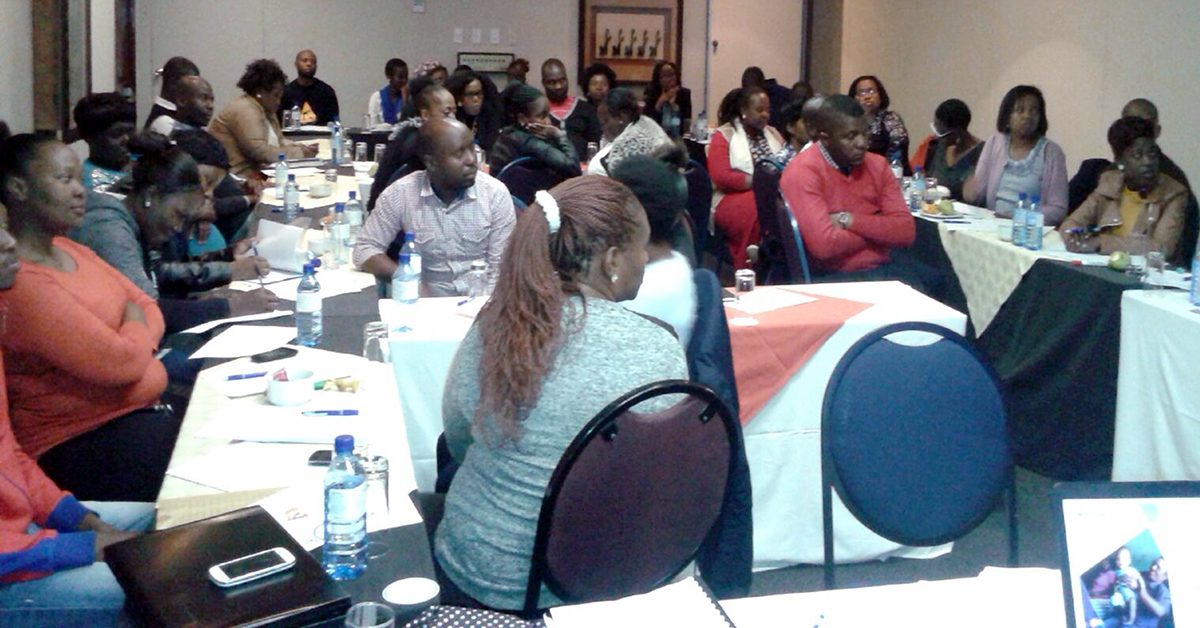
En el pasado, la mayoría de las intervenciones de trabajo social y la legislación sobre bienestar social en Sudáfrica se han orientado exclusivamente a las mujeres y los niños, y a su protección. Con este enfoque, es posible que se esté pasando por alto parte de la solución. Estas políticas e intervenciones no suelen tener en cuenta el impacto positivo que puede tener la participación equitativa y no violenta de los hombres en las familias. La profesión de trabajo social se ha centrado a menudo en los hombres y los padres como perpetradores de violencia y ha respondido mediante el encarcelamiento, en lugar de trabajar para involucrarlos en la prevención de la violencia, la prestación de cuidados y la crianza positiva.
Desde 2014, el Departamento de Desarrollo Social de Sudáfrica se ha asociado con MenCare+ Sudáfrica Fortalecer la capacidad del gobierno para involucrar a los padres en sus familias de manera positiva. Como parte de la asociación, Cuidado de hombres+ Ha ayudado a capacitar a 185 trabajadores sociales en cinco provincias de Sudáfrica.
Durante los talleres de MenCare+ con trabajadores sociales, se hizo evidente que la mayoría de los participantes estaban lidiando con experiencias negativas relacionadas con la paternidad, incluida la exposición a la violencia y otros problemas sociales. Para algunos, las experiencias negativas con sus propios padres habían influido en sus percepciones sobre la paternidad y sobre cómo se debería incluir a los padres en el trabajo social. Sin embargo, los talleres de MenCare+ condujeron a cambios positivos en las percepciones y el conocimiento, como testificaron los propios participantes:
“He aprendido que es importante alentar a los padres a que se involucren activamente en la vida de sus hijos. También he aprendido que los padres deben buscar otras alternativas a la disciplina, en lugar del castigo corporal”.
“Un padre también debe participar activamente en la gestión de la casa y en la crianza de los hijos… Es fundamental enfatizar el equilibrio de la responsabilidad compartida dentro de la familia y educar a los padres sobre el interés del niño”.
Durante los talleres de tres días, los trabajadores sociales aprendieron a lidiar con sus propias experiencias, a menudo negativas, relacionadas con la paternidad. Adquirieron habilidades tanto teóricas como prácticas que les permitieron comprender la importancia de la participación positiva del padre, las implicaciones de la paternidad ausente, los roles y las normas de género y la facilitación de grupos utilizando el programa de estudios MenCare+.